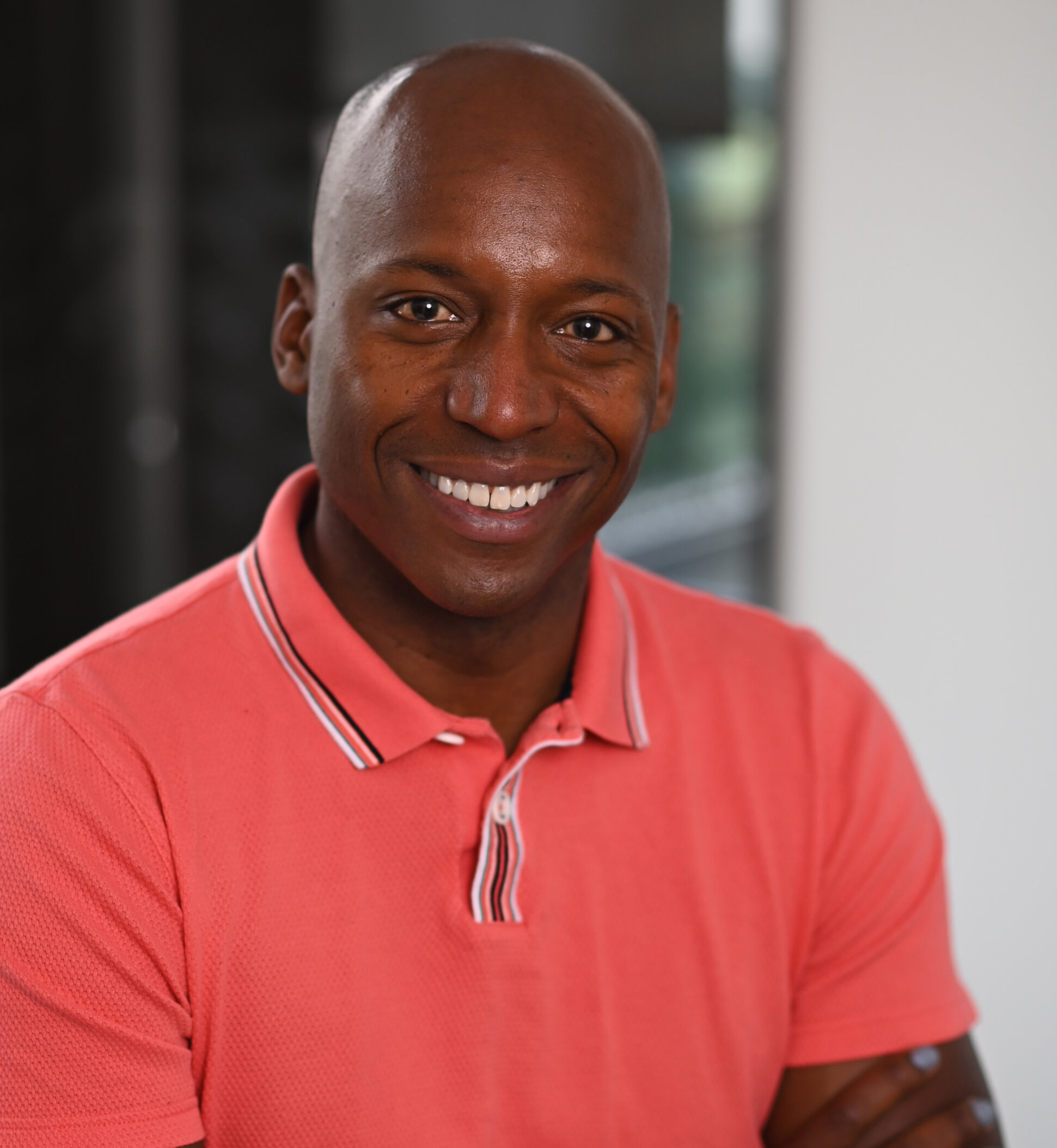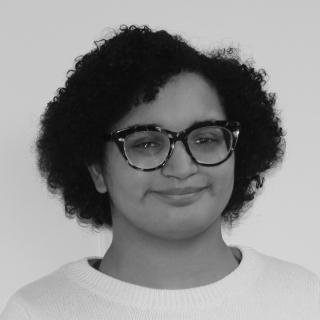
Sultan Shakir, a devoted advocate and champion for the LGBTQ community
The new Mazzoni Center head sat down with AL DÍA News to discuss his community work, his personal identity/coming out story and his vision for the organization.
For Sultan Shakir, accepting the role of president and executive officer at Mazzoni Center means coming back to his hometown. He grew up in North Philadelphia to parents who were school teachers and helped him navigate the Philadelphia school system. He also grew up Black, queer, and Muslim, identities that often clashed for him as a young person.
He received messages from each group that contradicted the intersection of his identity. “...when there was a lot of communication that Black people weren’t gay people. Throughout the decades there’s been a lot of tension between the queer community and Black people. Almost all of the messaging I received from the Muslim community was homophobic and transphobic,” Shakir said during an interview with AL DÍA News.
These messages were sometimes reinforced with horrifying stories. “I remember one [instance] talking to even a Muslim family member and that person describing that Muslims take queer people to the highest people they can find and throw them off. And like, this person is standing like, telling the story as if it’s nothing.” He remembers questioning what this person would do if they found out he was queer.
Fortunately for Shakir, he had people in his life and in his family who didn’t share these views. He describes coming out to his friends and grandmother as “great.” In one humorous instance, a friend he told was very supportive but was more focused on telling him about a silver cleaner she just found out about.
His parents weren’t initially accepting. “My parents went on their own journey with it. I don’t fault them for it and I think that’s important to note because I recognize that full acceptance of who I am is a journey and I have to recognize that for other people in my life,” he said.
He added that they are accepting now and have met his husband. Prior to coming out, he had worried about having to hide any partner he had from his family.
His own journey has taken him to a place where he’s fine with all of his identities and is working past internalizing the hatred of others towards any of them.
Working for the community
Shakir left Philadelphia to go to the John Hopkins’ Peabody Conservatory for music performance in Baltimore. While there, he got his first taste of community work.
There he tried to help low-income people hold their landlords accountable. The houses they lived in were so poorly maintained that they were causing the residents health problems like asthma. The residents were also being exposed to lead paint and rats. He and others helped the community organize and brought the issue to the local government. City leaders decided to do nothing about it.
Doing this work caused Shakir to “pull back the onion” and figure out how many systems were in place to hinder people like him.
“I started to notice there were so many people working against me and people like me. People were actively working to make sure that I’m locked up in jail and spend the rest of my life in a cage. Or the people trying to take away my right to even vote. There are people who are trying to destroy women’s access to healthcare. There are so many places of power that were pushing in a direction I don’t think we as a society should go. And that was really what drove me to say ‘while I’m young I’m going to focus on changing the world,’” said Shakir.
The community organizers based how they organized on unions. “It was using the union organizing model of one person working together with another person helps that team be more powerful. And if those two people work with another two people then they’re working together. And so it's the idea that you can build power person by person, block by block, neighborhood by neighborhood,” he added.
They also worked with unions like SEIU (Service Employees International Union) and AFSCME (American Federation of State, County & Municipal Employees) to tackle issues faced by marginalized communities.
During this time Shakir took a break from his studies to focus more of his time on community work. He incorporated his love for music and the arts into his work to give the Black and Brown communities he worked with an outlet. He eventually went back to John Hopkins and earned his degree, but had found his career in community work.
In addition to helping his career, working with the community also led him to his husband, Mark. They met in 2006 at Pride events in Philadelphia. They worked at different organizations, Shakir at the Human Rights Campaign and his husband at Liberty PA, but were assigned the same task: getting queer people out to vote. The race in question was between Rick Santorum, an anti-LGBTQ+ now-former senator, and Bob Casey.
Shakir worked with many LGBTQ+ organizations over the years, including the Human Rights Campaign and ACORN. He also served on the Pride Center of Maryland’s board during his coming out process in college. During this time, he was still grappling with the conflicting messages around his identity and through the board was able to find people who had gone through the same thing.
“And it gave me the opportunity to not only give back to the community but to be around other strong, confident queer and trans people who had also had to question their place in society, Shakir shared. “And thankfully, I got to meet a lot of them who had answered the question that they have a value[able] place in society, whether society sees that or not.”
His most recent role was the Executive Director of SMYAL (Supporting and Mentoring Youth Advocates and Leaders), a Washington, D.C.-based organization that helps to identify deeper issues affecting queer and trans youth. The organization boasts several programs, such as the Youth Housing Program.
About 40% of homeless youth identify as part of the LGBTQ+ community. The Youth Housing Program is an eight-bed program where young people can stay for up to two years. In addition to housing, they are provided with access to certifications, money for items they need, and case management support. It can currently serve 60 youth at a time and is one of the biggest programs of its kind on the East Coast.
Some of the other programs the organization offers are Rise Up, Little SMYALs, and Clinical Services.
Rise Up is a conference of young leaders from all over the country and the world. The conference brought youth together to talk about the issues that they were concerned with. This included queer/transgender-related issues, the environment, white supremacy, and mass incarceration. It served as a way for them to discuss and collaborate on their solutions to these issues.
The organization provided financial resources to them to give them the financial support they would need, but may not have access to, to fix these issues. Since the conference was held over Zoom, it gave young people who normally won’t have access to this type of event, the ability to participate.
Little SMYALs is a program for queer and trans youth aged 6 to 12, designed to give them a space that isn’t for a specific problem or a medical reason. It gives the kids a place to go and try out a new name or way of expressing themselves. It also gives parents and siblings access to resources and support.
RELATED CONTENT
“Kind of like what I was talking about with my own story, we know that when a youth transitions, the whole family transitions,” said Shakir.
Some of the resources provided to parents and schools are designed to take the burden of educating on the child’s identity off of the child.
Clinical Services was created to meet the need for free, culturally competent therapy among the young people SMYAL helps. This need was especially dire during the beginning of the pandemic when people couldn’t be around their chosen families/communities.
Back in Philly
Shakir is overjoyed to be returning to his hometown. He expresses major love for his Philly family and the city itself, but didn’t shy away from calling out things the city needs to improve like its segregation. He also maintains confidence that those challenges could be overcome.
Philly is starting to overcome some of its issues, particularly in the local LGBTQ+ community. Shakir believes that Philadelphia is doing a great job highlighting activism and calling out discrimination, especially against BIPOC people, and working to dismantle the glaring disparities.
“I think Philly has been a place that is increasingly working in coalition across groups to look at what are the challenges that our community is facing that maybe one group can’t handle, but collectively the LGBTQ groups across the region can handle or at least come up with some ideas and solutions to handle,” he said.
In D.C., groups are similarly working together to address issues in the community. Over the past three years, Shakir watched LGBTQ+ organizations in the area go from fighting over a scarce amount of money and resources to working together. This is in part due to the LGBTQ+ Budget Coalition that has helped build relationships between groups.
Shakir also noted that some of the money went towards issues in the community that are often overlooked. This includes transgender people reentering the community after being in prison, and homeless services for adults and seniors.
Mazzoni Center and Next Steps
Shakir left SMYAL in late 2021 because he saw the need at Mazzoni Center and the impact the Center has on the local community. He also wanted to help repair the damage done by the organization’s past scandals. In 2017, allegations of sexual misconduct and a racist work culture led to the medical director Dr. Robert Winn, the CEO Nurit Shein, and six board members resigning.
Since then, the staff has unionized and the interim leadership team (ILT) has been running things. “And so both of those things have really led to the organization looking at what policies and procedures can be put in place, how the Mazzoni Center can operate in a more equitable way [and] how the organization can be more transparent. It definitely led to some positive changes,” Shakir said.
Shakir’s recent hiring is the next step forward for the organization, and he is bringing all of his experience with him to help the organization continue to move forward and help its community. In addition to his experience, Shakir also brings his ability to engage in trauma-informed management and community engagement, as well as conflict resolution.
Like SMYAL’s Clinical Services Department, Mazzoni Center offers healthcare to those in the LGBTQ+ community. For Shakir, the health and wellbeing of those in the community are very important and the organization’s work in this area is part of what drew him there.
“I think there is no question that health and well-being is one of the top needs in the community. It affects so many different things. If you're not mentally healthy, if you’re not physically healthy, it's hard to hold down a job, it's hard to have a relationship with a partner, it's … hard sometimes just to get out of bed every day, whether it's, again, behavioral health-wise or physically. And so really ensuring that our community is safe, is well [and] has systems in place to deal with past trauma, all of that is so critically important,” he stated.











LEAVE A COMMENT:
Join the discussion! Leave a comment.